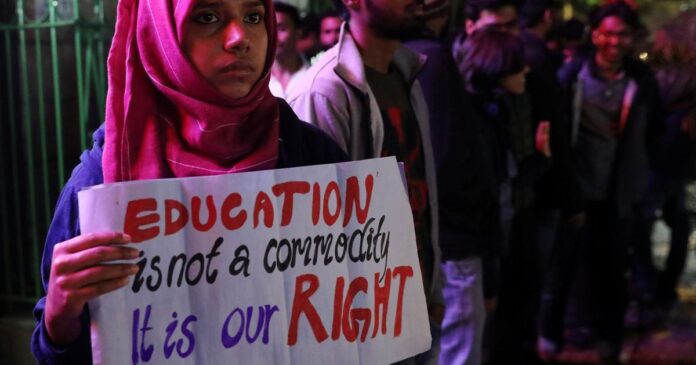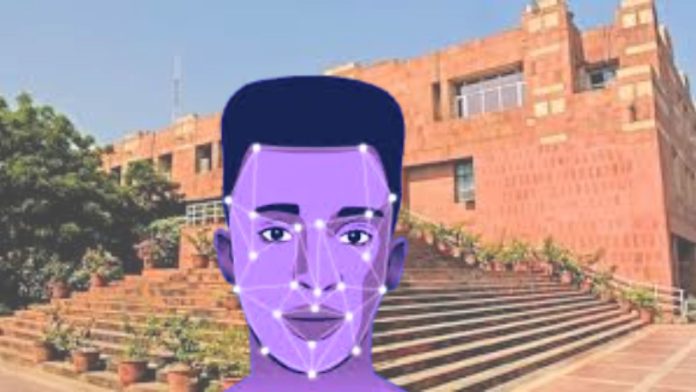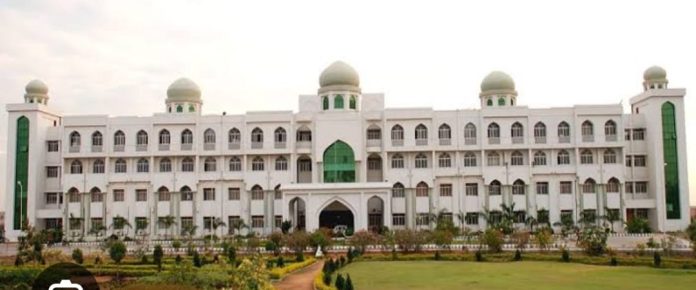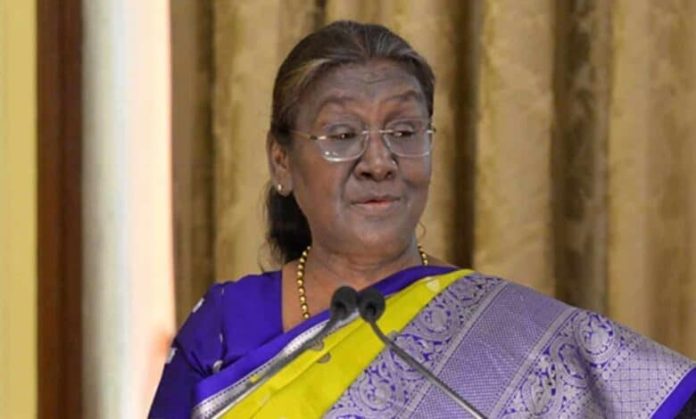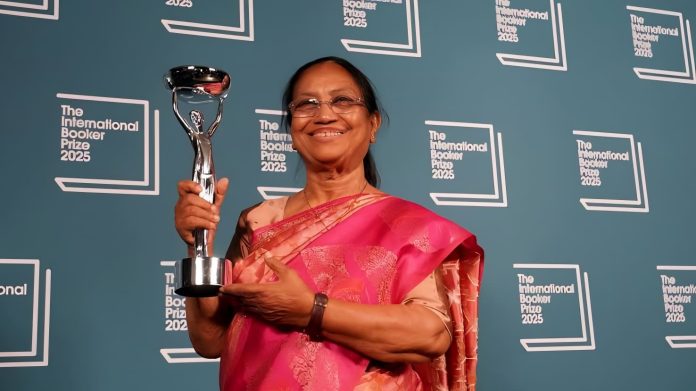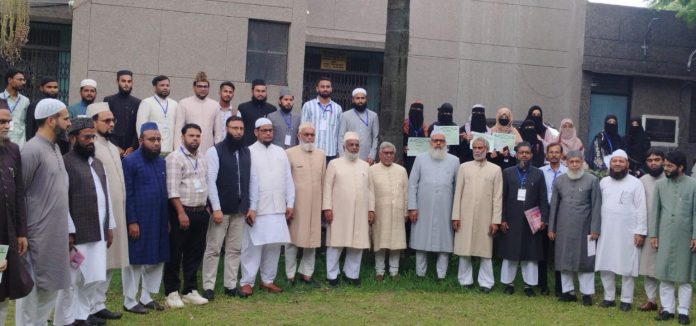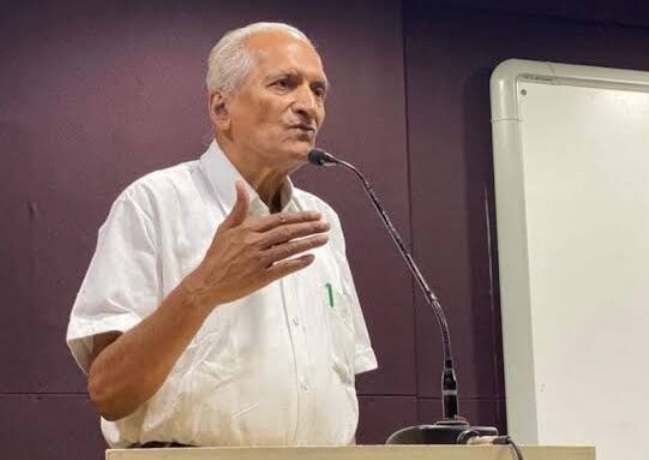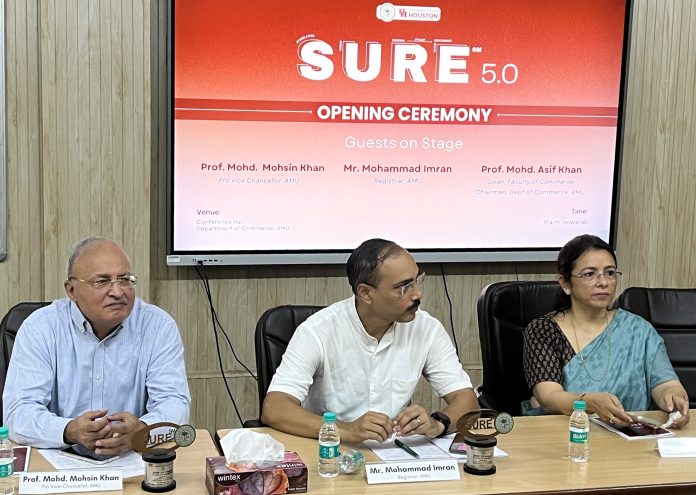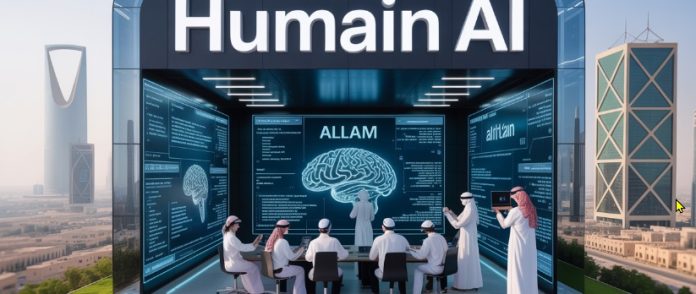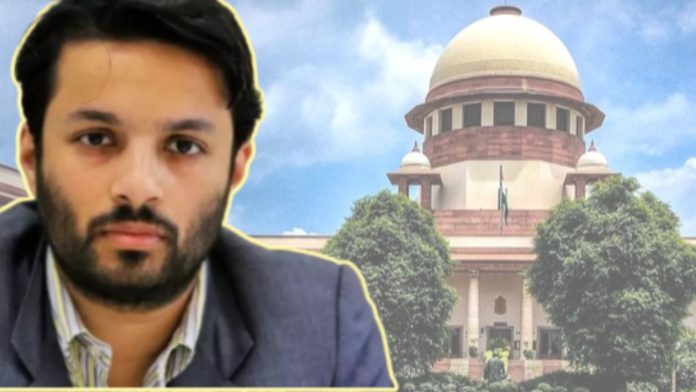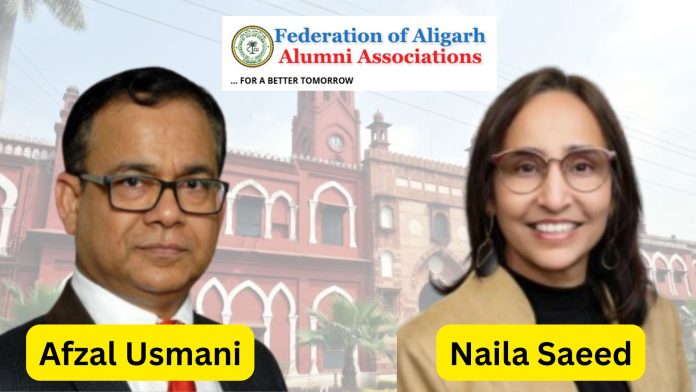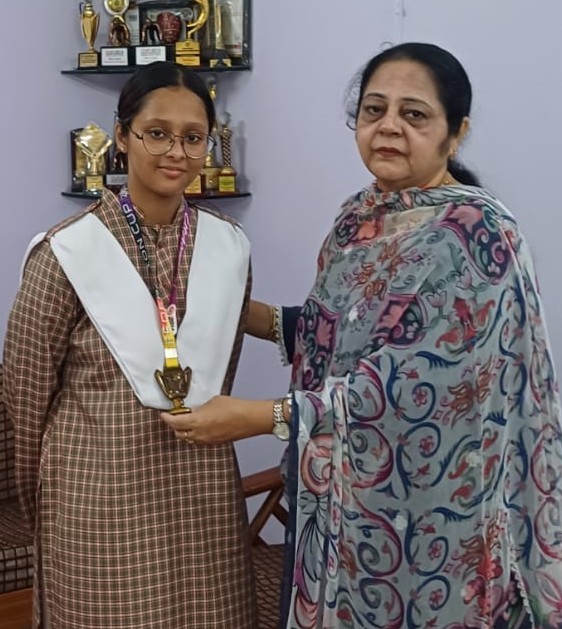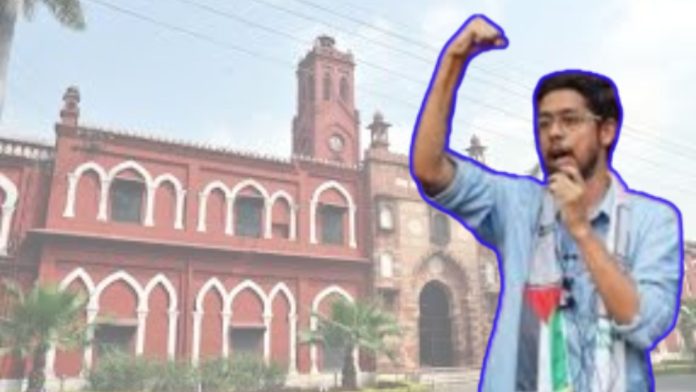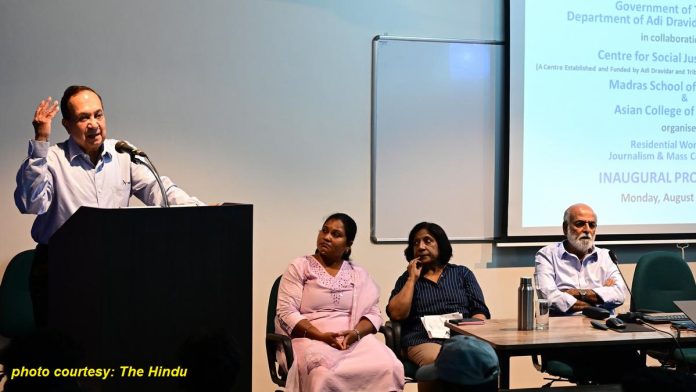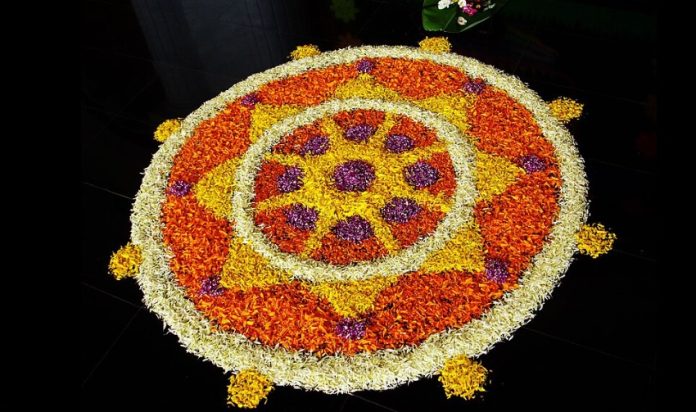By Shaikh Saleem
MUMBAI: Protests against the Waqf Act are raging across the country, and Muslims everywhere have taken to the streets in anguish. Under this new law, a vast number of mosques, dargahs, graveyards, and imambaras owned by the Muslim community are now under severe threat. The Bharatiya Janata Party (BJP) government seems committed to inflicting harm upon Muslims through an unending series of legislative moves. Bulldozers, despite clear High Court orders, continue to demolish Muslim homes and mosques relentlessly. Hardly a day passes without news of a house or a mosque being razed. Simultaneously, the government appears to have meticulously arranged for Muslims to slide deeper into educational backwardness.
Educational deprivation among Muslims in India remains a major concern that demands urgent attention. In recent years, multiple initiatives that once supported Muslim students have either been altered, severely cut, or completely abolished. As a result, opportunities for Muslim students to pursue education are steadily diminishing. The 2006 Sachar Committee Report starkly revealed the appalling socio-economic and educational conditions of Muslims in India. In response, the then Congress government launched several dedicated initiatives to improve the community’s standing. These included the Maulana Azad National Fellowship, Pre-Matric Scholarships, the “Padho Pardes” scheme, and the Maulana Azad Education Foundation. Yet, under the current regime, these schemes have been systematically curtailed or dismantled. The Maulana Azad National Fellowship, designed to support Muslim students pursuing MPhil and PhD degrees, was abolished. The government justified the decision, citing “overlap with other schemes,” although this fellowship specifically addressed the unique needs of Muslim students seeking higher education. The Pre-Matric Scholarship, once available from Classes 1 to 10, has been restricted to only Classes 9 and 10. Previously, it provided critical financial support to young Muslim children during their foundational years. Now, many children in the lower grades face immense difficulty continuing their education. Similarly, the “Padho Pardes” scheme, which offered financial assistance to minority students aspiring to study abroad, has been scrapped. This move has deprived Muslim students of the opportunity to access an international-standard education. The closure of the Maulana Azad Education Foundation is another alarming development. This institution had been tirelessly working towards the educational upliftment of Muslims, especially Muslim women. Its shutdown has severely impacted numerous educational and developmental projects. Further compounding the situation, budget cuts have been imposed on minority education, and funding for madrasas has been slashed drastically. Madrasas, crucial centres for both religious and worldly education for the Muslim community are now grappling with financial hardships, fighting for their very survival.
The consequences of these measures are already surfacing visibly. The end of the Maulana Azad National Fellowship has made it financially difficult for Muslims to pursue higher education. The Muslim representation in research and advanced academic fields will likely decline as a result. The reduction of the Pre-Matric Scholarship scope is hurting young Muslim children’s primary education prospects. It risks pushing up the school dropout rate, especially among the economically weaker sections of the community. The termination of the “Padho Pardes” scheme strips Muslim students of the chance to gain exposure to global education systems, diminishing their ability to compete internationally. The shutdown of the Maulana Azad Education Foundation gravely impacts programmes dedicated to Muslim women’s education, causing a major setback for gender parity within the community. The slashing of madrasa funds is undermining the religious and cultural identity of Muslims in India. Madrasas, vital to the community’s educational and cultural continuity, now struggle to sustain their operations. Worryingly, the government has provided no substantial justification for dismantling these crucial educational supports. Experts argue that this is a calculated attempt to further marginalize the Muslims educationally. As a result, literacy rates among Muslims are declining, making them even more vulnerable socio-economically and politically. Education is the only reliable means for a community to progress and advocate for its rights.
In response to these grave challenges, Indian Muslims must undertake several urgent initiatives. Organizing private educational funds is critical. Allocating a significant share of zakat and charitable donations towards modern education is imperative. It is equally vital to launch awareness campaigns emphasizing the transformative power of education for the next generations. Muslims must also raise their voices boldly at every forum to demand their educational rights. A broader mass movement needs to be initiated because education is a fundamental right particularly for citizens who contribute taxes and uphold the nation’s economy. Establishing and strengthening Muslim educational institutions must become a priority. At the political level, too, Muslims must support and elect representatives who will fight for their community’s educational rights. The abolition of educational schemes is indeed a new trial for Indian Muslims. However, this trial could also inspire a renewed spirit of determination and resilience. Every setback carries within it the seed of new opportunities. We must strive harder to carve fresh paths toward education for our children. Education is the beacon that can lift a nation out of the darkness of ignorance. If today’s Muslim children are being denied their rightful opportunities, then it becomes our collective obligation to pool our resources, energies, and efforts to counter these injustices.
The road ahead will not be easy, but it must be remembered: seeking knowledge is not just a right it is a duty for every Muslim. If we remain silent today, our future generations will hold us accountable for the lost opportunities. To kindle the lamp of knowledge, every home and every neighbourhood must make an effort. Only then can we hope to illuminate our future.


